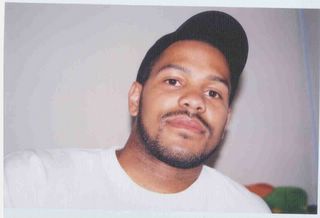I was talking to my brother and a friend of his about a month or two ago and finally made public my opinion on why the 'battle' between 'hip-hop' and 'gangsta-rap' is utterly futile. That is to say that 'hip-hop' will never win this battle, or the war.
To understand what i mean, i have to take you into the fields of linguistics and semantics, the study of language and meaning, respectively. In the little book "metaphors we live by" semanticists Lakoff and Johnson propose the theory that everyday metaphors such as "good is up" and "bad is down" (ex, stock market, feelings, boxers etc.) have more of an influence in our lives than we thought.
These fellas took to task the metaphor "argument is war" by flushing out aspects of this metaphor we find in everyday language: " Your claims are
indefensible. He
attacked every weak point in my argument. His criticisms were right on
target. I
demolished his argument. I've never
won an argument with him." These point to that we understand argument through the metaphor of war. Correspondingly, since this is a very well-developed metaphor, many of our conversations and 'heated discussions' devolve into pitche battles over who is right and who is wrong, sound familiar?
If that doesn't convince you of the subtle and powerful nature of metaphors, what about our notions of "love"? Many people understand, explain and express love in different ways. Think of a couple who have differing notions of love: one thinks "love is blind" while the other thinks "love is hurtful". What about either of them in a different relationship with someone thinking that "love is a collaborative work of art?" Do you think they'd get along? Even at first glance your gut tells you that these two (in any combination) won't make for a happy couple. Sure there'd be happy moments, but a happy couple? Nope. That's because you understand how powerful the notion of love is to a relationship, and how one understands what love 'is' has an influence on how they think and act, whether they're in or out of love.
So now what? Metaphors influence the way we think, and act. What's that got to do with the battle between 'hip-hop' and 'gangsta rap'? Look closely, is it really a 'battle'? Do conscious rappers come out and say bad things about thugs, and vice versa? Is it a overt battle, or is it more subtle and nuanced? Heard of player haters? Heard of hater players?
Why hip-hop will never win the battle or war against gangsta rap is that gansta rap has a monopoly on violence. There are options to undermine this 'battle' and 'war'.
The first is revolution, armed revolution (of which i'm not an advocate). What's happening in the communities that breed gangsta rappers and consume gangsta rap is violence. Plain and simple. Whether it's inner city shootings, or rural beat downs, or vice versa, violence is happening. The biggest kid on the block pretty much runs things. These kings-of-the-hill walk around with a veneer of moral authority to use violence. They use violence to protect their person, their people, their rep and their hood. That's understandable.
In a revolutionary situation, armed or not, the moral authority of violence lay not with the individual protecting his own, but with a force protecting the good of the community. In an ideal situation, that would be the police. But we don't trust them. So, the revolutionary nature of the situation would be a self-policing of the community by the community. Something real critical would have to shift both inside and outside the black community for the revolutionaries to gain the moral authority for violence: internal policing based on the good of the village or community, not its individuals. In the sixties, this took the form of the Black Panthers and like-minded organizations.
Now let's move on to a more likely and palatable option: Hip-hoppers get a new metaphor- competition and/or dance. Early 'battle rap'. . . Early competitive rap was a test of who could brag the most and the flyest. Emcees outclassed and outmaneuvered each other with lyrical wit, sometimes using threats of violence, threats of stealing the others girl(s) and outright disrespecting their opponent. It was the ability of the emcees to avoid taking things personally inside the cipher that both bolstered their own reputation (he can take a pounding as well as give it out) and prevented violence from breaking out. Unfortunately, some people didn't have this mental-emotional armor, and got sensitive. They brought the beef down to a physical level.
Brinksmanship. "don't push me cuz i'm close to the edge, i'm trying not to lose my head". Early emcees pushed the envelope to get each other's goat as well as put up the aura that they were invincible or at least flexible enough to laugh at themselves, thereby gaining rep for being a 'good sport'.
So we need an alternative metaphor, one that can replace the metaphor 'battle' to understand, experience, explain and express what goes on in a exchange of lyrics. The closest metaphors i can think of are competition and dance. Why i chose those is becaue they are both dynamic in nature. I also chose them because they are relatively developed metaphors. Unfortunately, we have no extensive vocabulary for either.
Why would the hip-hoppers need a new metaphor? Because of the collapse of reality and illusion. The battle is a game played where each participant portrays his or her own invincibility and power. When that illusion bubble is popped and the portrayal remains, people take things personally. Then comes the beat down. To prevent this violence from happening, a subtle but powerful shift must be created where the operating metaphor keeps the intensity of 'battles' but eliminates the overt threats of violence.
Okay, so i never promised that i would have well-thought out essays. Deal with it.






